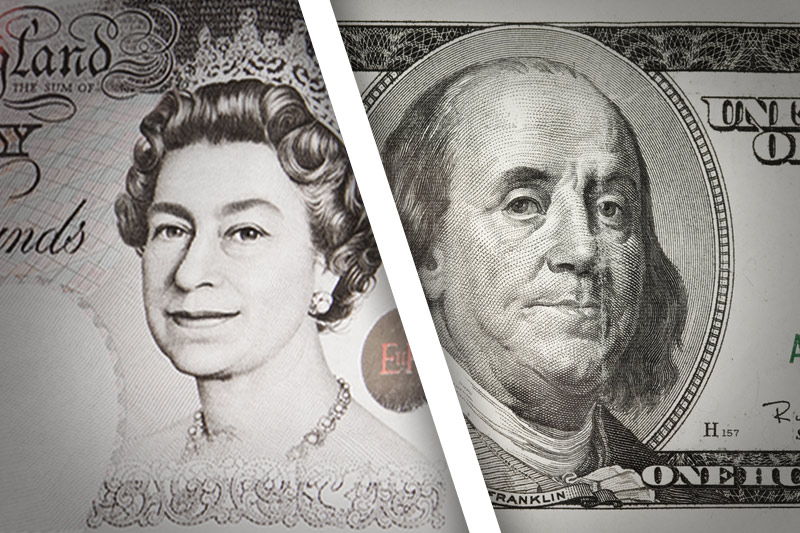Investing.com - The pound fell against the dollar on Tuesday after U.S. inflation rates came in stronger than markets were expecting, fueling sentiments that the days of ultra-loose monetary policy at the Federal Reserve are coming to an end.
In U.S. trading on Tuesday, GBP/USD was trading down 0.13% at 1.6962, up from a session low of 1.6938 and off a high of 1.6990.
Cable was likely to find support at 1.6739, last Wednesday's low, and resistance at 1.7011, Monday's high.
The Labor Department reported earlier that the U.S. consumer price index rose 2.1% on year in May and rose 0.4% from April. It was the fastest increase in annual inflation since October 2008, which sparked demand for the greenback.
Market expectations had been for an annual increase of 2.0% and a monthly rise of 0.2%.
Firming inflation rates should prompt the Federal Reserve to continue winding down its monthly bond-buying program and later raise benchmark interest rates from current record lows as the economy gains steam.
The Fed will conclude a two-day policy meeting on Wednesday, and the U.S. central bank is seen scaling back its asset-purchasing program by another $10 billion, though hikes to benchmark interest rates won't come until sometime in 2015, according to market sentiments.
A separate report showed that both U.S. housing starts and building permits fell in May, pointing to underlying weakness in the housing sector.
The Commerce Department reported that housing starts dropped by 6.5% last month to 1.001 million units, while the number of building permits issued last month fell by 6.4% to 991,000 units, though markets focused on inflation data instead.
Elsewhere, the pound came under pressure after the Office for National Statistics reported the U.K.'s inflation rate rose 1.5% on year in May and fell 1.8% from April and the lowest reading since October 2009.
Economists were expecting an annual inflation rate of 1.7% and a monthly 0.2% rate.
Core CPI, which strips out food costs, but includes transportation costs, rose 1.6% year-over-year, slightly below expectations of 1.7%.
However, the report also showed that house prices rose 9.9% in April, their biggest annual increase since June 2010, fuelling fears over a bubble in the property market.
Despite the rapid economic recovery in the U.K. low levels of inflation have given the Bank of England leeway to keep interest rates on hold at record lows of 0.5%. But BoE Governor Mark Carney indicated last week that rates could rise sooner than markets expect as the recovery continues to gain momentum.
Elsewhere, sterling was up against the euro, with EUR/GBP down 0.08% at 0.7986, and down against the yen, with GBP/JPY up 0.16% at 173.25.
On Wednesday, the pair will move on the Federal Reserve's announcement on monetary policy, while the Bank of England is to publish the minutes of its latest policy setting meeting.
